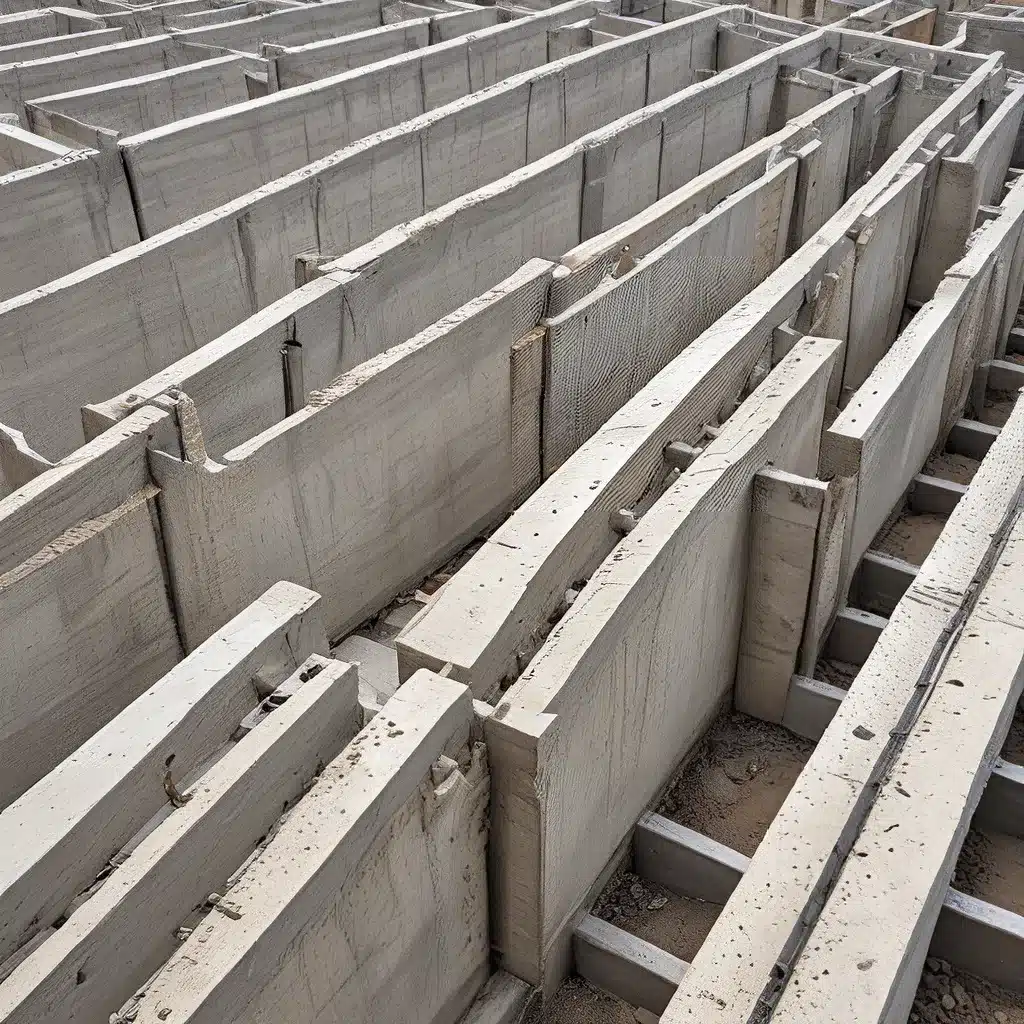
The Vital Role of Rebar in Concrete Structures
Concrete is a ubiquitous material in the construction industry, used to build the foundations, walls, and load-bearing structures that form the backbone of our modern infrastructure. However, despite its impressive compressive strength, concrete alone is often insufficient to withstand the tensile forces and shear stresses that structures face. This is where reinforcement bars, or rebar, come into play.
Rebar, a high-strength steel bar with a distinctive ribbed surface, is strategically embedded within concrete to create a composite material that excels in both compression and tension. By intertwining the strengths of concrete and steel, rebar reinforcement transforms concrete from a brittle material into a robust, durable structure capable of withstanding the rigors of the modern built environment.
Rebar’s versatility extends beyond its mechanical properties, making it a crucial component in the construction of a wide range of structures, from towering skyscrapers to sprawling bridges. Its ability to be customized in terms of size, shape, and configuration allows engineers and architects to tailor the reinforcement to the specific requirements of each project, ensuring the structural integrity and long-term performance of the final construction.
The Art of Rebar Placement and Integration
The strategic placement and integration of rebar within a concrete structure are critical to its overall strength and stability. During the design phase, engineers and architects collaborate to meticulously specify the location and arrangement of the rebar, taking into account factors such as regional weather conditions, seismic activity, and soil stability.
Once the design is finalized, skilled tradespeople carefully position the rebar within the designated areas of the concrete formwork, ensuring that it is aligned according to the specified layout and spacing requirements. This process demands a high level of precision and attention to detail, as any errors in the rebar placement could compromise the entire structure.
As the concrete is poured, it envelops the rebar, forming a strong, cohesive bond that transforms the individual components into a unified composite structure. This fusion of materials is crucial, as it optimizes the transfer of forces between the concrete and steel, enhancing the overall structural integrity of the final construction.
Advancements in Rebar Technology
The construction industry has witnessed a surge of innovative developments in the field of rebar technology, driven by the ongoing pursuit of stronger, more durable, and more sustainable reinforcement solutions.
One of the most notable advancements is the emergence of high-strength rebar, engineered to withstand higher loads and offer greater structural efficiency compared to conventional rebar. By leveraging advanced steel alloys and manufacturing processes, these specialized rebar products enable engineers to design lighter and more cost-effective structures without compromising on safety or durability.
Additionally, the industry has seen a growing interest in alternative materials for rebar, such as fiber-reinforced polymer (FRP) composites. These composite materials boast a range of benefits over traditional steel rebar, including high strength-to-weight ratios, corrosion resistance, and electromagnetic neutrality. By incorporating FRP rebar into concrete structures, engineers can reduce construction costs, improve durability, and enhance structural performance, particularly in applications where weight savings and corrosion resistance are paramount.
Another innovative approach to concrete reinforcement involves the use of carbon rods, also known as carbon fiber reinforced polymer (CFRP) rods. These lightweight, high-strength materials are strategically placed across cracks or weakened areas in existing concrete structures, effectively stitching the damaged elements back together and restoring their structural integrity.
Furthermore, the integration of sensor technology into rebar systems has opened up new possibilities for real-time monitoring of structural health and performance. These smart rebar systems can provide valuable insights into factors such as load distribution, strain, temperature, and corrosion levels, enabling proactive maintenance and optimization of infrastructure assets.
Concrete Reinforcement in Kansas City
As a thriving hub for construction and infrastructure development, Kansas City has long recognized the importance of robust concrete reinforcement in ensuring the durability and longevity of its built environment. From residential foundations to commercial high-rises, the strategic use of rebar has been a cornerstone of the city’s construction landscape.
Concrete contractors in Kansas City have honed their expertise in the proper placement and integration of rebar within various concrete structures, drawing on the latest advancements in materials and techniques to deliver high-performance, resilient solutions tailored to the region’s unique environmental conditions and construction requirements.
Whether it’s strengthening the foundations of a new home, repairing the deteriorating walls of an aging commercial building, or reinforcing the load-bearing elements of a critical infrastructure project, these experienced professionals understand the vital role that rebar plays in ensuring the structural integrity and long-term viability of concrete structures.
Conclusion: The Backbone of Concrete Construction
Rebar stands as a cornerstone of modern construction, reinforcing the foundations of our built environment with strength, durability, and resilience. As the construction industry continues to evolve, the ongoing innovations in rebar materials and techniques ensure that our structures can withstand the tests of time and nature, providing a sturdy and reliable backbone for the infrastructure that supports our communities.
Whether you’re a homeowner in Kansas City looking to strengthen your home’s foundation, or a business owner in need of concrete repair and reinforcement for your commercial property, understanding the pivotal role of rebar is essential to making informed decisions and investing in the long-term stability of your investment.
By partnering with experienced concrete contractors in Kansas City who stay at the forefront of rebar technology and best practices, you can rest assured that your concrete structures will stand the test of time, serving as a solid foundation for your property and your community.

